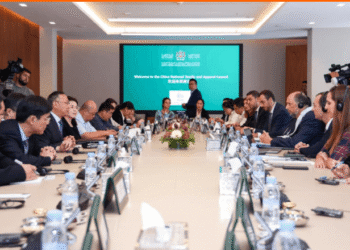African countries are maintaining their positions in the global innovation landscape despite modest declines in performance, according to the latest Global Innovation Index (GII) published by World Population Review.
The 2025 data show Mauritius leading the continent at 55th place with an innovation score of 30.6, followed by Morocco (66th, 28.8) and South Africa (69th, 28.3). These figures mark a continuation of trends observed in 2023 and 2024, when the same countries occupied top regional spots with scores fluctuating within a narrow band.
Innovation scores across the continent have declined slightly over the past three years, with most countries losing between 0.5 and 2 points. South Africa, for example, dropped from 59th in 2023 to 69th in 2025, while its score fell by 2.1 points. Tunisia, Egypt and Botswana also saw minor declines, though their rankings remained largely unchanged.
The GII measures innovation performance across pillars such as infrastructure, human capital, market sophistication and knowledge outputs. While African countries continue to lag behind global leaders, the data suggest that their innovation ecosystems are not deteriorating but rather stagnating.
“Relative stability in rankings indicates that Africa is not falling behind—it’s holding position while others accelerate,” the report notes.
Burundi was the only African country to record a score increase between 2023 and 2025, rising by 0.7 points and climbing three places. Morocco also improved its score in 2025, suggesting that targeted investments in industrial modernization and digital infrastructure may be yielding results.
The GII does not account for informal innovation or grassroots entrepreneurship, which remain significant in African economies. Nor does it measure the impact of innovation on social outcomes such as access to energy, education or healthcare.
Policymakers across the continent have acknowledged the need for structural reform. In Kenya, Rwanda and Nigeria, governments have launched initiatives to support startups, expand internet access and reform intellectual property regimes. However, funding gaps and regulatory bottlenecks continue to constrain progress.
The goal, according to regional analysts, is not to match the innovation intensity of OECD countries but to build systems that are locally relevant and globally competitive.
“Africa’s innovation challenge is not just about rankings—it’s about resilience, relevance and readiness,” said a policy advisor at the African Development Bank.
The 2025 GII underscores the importance of long-term investment in education, research and digital infrastructure. Without these, experts warn, Africa risks remaining a passive participant in the global innovation economy.
Still, the continent’s top performers—Mauritius, Morocco and South Africa—demonstrate that progress is possible with the right mix of policy, investment and institutional support. Their experience may offer a blueprint for others seeking to move beyond stagnation.
Second Eye Africa




